Nature reports
Publisher: NIOZ Royal Netherlands Institute for Sea Research
Page 5 of 9 - 82 Results
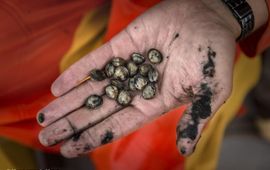
As tidal flats subside due to gas extraction, their composition changes. This is shown in a paper that is published in this month’s Journal of Applied Ecology. ..
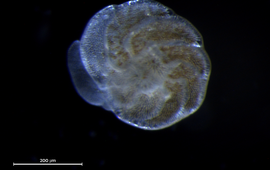
The fossil calciferous skeletons of single-celled foraminifers are a beautiful history book with information on CO2-levels in the oceans of the distant past. "But if you want to fully understand that history, you must first..
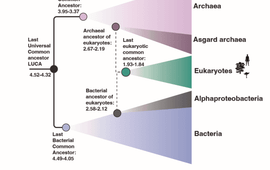
LUCA, the ‘last universal common ancestor’ of all living organisms, lived 4.32 to at most 4.52 billion years ago. This is indicated by a study from NIOZ biologists Tara Mahendrarajah and senior author Anja Spang, with..
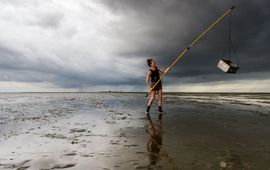
Contrary to the population trends for many shorebirds, sanderlings have been doing relatively well in the Wadden Sea for the past years. The key to that success lies in the timing of these little birds' main food: shrimp on the..
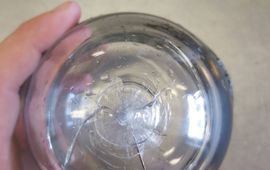
Due to the changing climate, the underwater world is getting ever noisier. That is the main conclusion of a study that was published today in the scientific journal PeerJ. ..
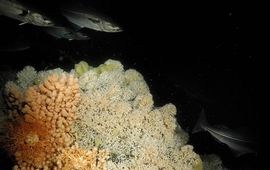
For the first time, proof has surfaced that even cold-water coral reefs that live in the cold and dark deep sea, grow in self-organised patterns. Such pattern formation is a ’trick’ that enhances the resilience of ecosystems under..
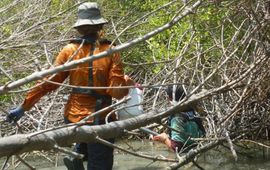
Along the Asian coastlines there are many areas where rural communities experience alarming rates of sea level rises due to land subsidence up to ten centimetres per year. This causes tremendous challenges on how to live there and..
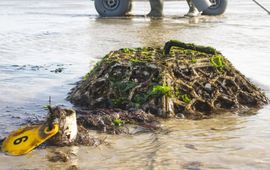
With 3D printed 'lampshades', made of biologically degradable material, NIOZ PhD candidate Daniel Varley and colleagues have found a successful formula to give oysters, mussels and other reef builders 'a kick-start'. Numerous..
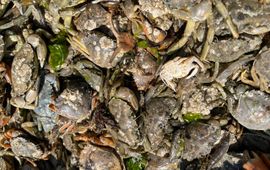
A herring in the North Sea, a crab in the Wadden Sea or an anemone fish on a coral reef, ... biologists like to think in terms of individual species that all have their own place within food webs in ecosystems across the world...
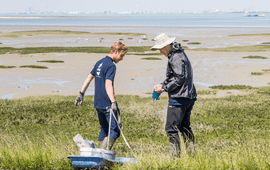
The expected increase in extreme weather could make the bottom of tidal flats more unstable. That's shown by NIOZ researcher Zhengquan Zhou in the PhD thesis he will defend at Utrecht University on September 7th. ..
